Simple, U.S.-friendly choices that support strength, steady energy, and easier movement—no fads.

Table of Contents
- Why fruit matters for muscles after 60
- 7 fruits that support strength & mobility
- 1) Banana (potassium for muscle contraction)
- 2) Citrus & Kiwi (vitamin C for connective tissue)
- 3) Berries (anthocyanins & everyday recovery)
- 4) Tart Cherries (pre-exercise recovery support)
- 5) Watermelon (hydration + citrulline)
- 6) Avocado (potassium + fiber + healthy fats)
- 7) Prunes & Grapes (regularity, polyphenols, easy snacks)
- Smart pairings for stronger meals
- Hydration, timing, and safety for seniors
- FAQs
- Related reads on KeepFitQuote
Why fruit matters for muscles after 60
After 60, muscles need three quiet helpers every day: potassium (for contraction and nerve signals), vitamin C (for collagen and connective tissues), and polyphenols (plant compounds tied to recovery and vascular health). U.S. guidelines also remind older adults to keep up with fluids—thirst cues can fade with age. MyPlate+3Office of Dietary Supplements+3Office of Dietary Supplements+3

Big picture: fruit covers a lot of this in one move—potassium, fiber, vitamin C, water, and helpful plant compounds. See the USDA MyPlate fruit group for a quick refresher. MyPlate
7 fruits that support strength & mobility
1) Banana (potassium for muscle contraction)

Why it helps: Potassium supports muscle contraction and nerve transmission; bananas are an easy, portable source. Office of Dietary Supplements
Try this: Slice a banana over Greek yogurt or oatmeal before a walk.
Heads-up: If you have kidney disease or take potassium-sparing meds, ask your clinician about daily potassium targets. Office of Dietary Supplements
2) Citrus & Kiwi (vitamin C for connective tissue)

Why it helps: Vitamin C is required to make collagen, a backbone for tendons, ligaments, and joint cartilage. Oranges, grapefruit, and kiwi are simple ways to hit the mark. Office of Dietary Supplements
Try this: Citrus-spinach salad or a kiwi with breakfast (1 kiwi ≈ ~60 mg vitamin C per 100 g). My Food Data
3) Berries (anthocyanins & everyday recovery)
Why it helps: Blueberries, strawberries, and blackberries carry anthocyanins—color compounds linked with vascular health and healthy aging markers. Harvard Health+1
Try this: ½–1 cup on oatmeal or yogurt; frozen berries are budget-friendly and always ripe.

4) Tart Cherries (pre-exercise recovery support)
Why it helps: Small trials suggest tart cherry (rich in anthocyanins) can support faster recovery when consumed for several days before activity; effects are clearest in trained folks, but the approach is food-first and senior-friendly when using whole cherries. PMC

Try this: Add frozen tart cherries to a smoothie 3–5 days before a busier week of gardening or walking. (Juice is higher in sugar; whole fruit adds fiber.)
5) Watermelon (hydration + citrulline)
Why it helps: Watermelon is about 92% water, handy when thirst is dull. It also contains L-citrulline, studied for blood-flow and post-exercise comfort. Mayo Clinic Health System
Try this: Blend seedless watermelon with a squeeze of lime; sip after outdoor activity.

6) Avocado (potassium + fiber + healthy fats)
Why it helps: Avocado is technically a fruit—and a rich, creamy way to add potassium, fiber, and heart-healthy fats to meals. SNAP-Ed Connection
Try this: Whole-grain toast with mashed avocado and sliced tomatoes as a satisfying lunch.

7) Prunes & Grapes (regularity, polyphenols, easy snacks)
Why they help: Prunes support regularity (fiber + sorbitol), and grapes deliver polyphenols like resveratrol; both are grab-and-go snacks that pair well with protein. For serving sizes and nutrient specifics, use USDA FoodData Central as your quick lookup. FoodData Central

Smart pairings for stronger meals
- Fruit + protein: Banana + Greek yogurt; berries + cottage cheese; orange + handful of almonds.
- Fruit + whole grains: Kiwi + overnight oats; prunes folded into barley pilaf.
- Fruit + hydration: Watermelon cubes with a glass of water (easy 2-for-1 on fluids).
- Gentle, senior-friendly keywords to weave in naturally: “fruits to support muscle strength after 60,” “daily fruit snacks for senior mobility,” “potassium-rich fruit for muscle function.”
Hydration, timing, and safety for seniors
- Hydration first: Older adults can miss thirst cues—make fruit an easy hydration add-on and keep a water bottle handy. MyPlate
- Before activity: A light fruit snack 30–90 minutes pre-walk sits well for most people (banana, orange, or berries + yogurt).
- Check your meds: If you take ACE inhibitors, ARBs, potassium-sparing diuretics, or have kidney issues, confirm potassium goals with your clinician. Office of Dietary Supplements
- Diabetes note: Whole fruit (with fiber) generally beats juice; balance portions with protein or fat for steadier energy. See MyPlate—Older Adults tips. MyPlate
FAQs
1) What fruits help muscle function after 60?
Banana (potassium), citrus/kiwi (vitamin C), berries and tart cherries (anthocyanins), watermelon (hydration + citrulline), avocado (potassium + fiber). Mayo Clinic Health System+4Office of Dietary Supplements+4Office of Dietary Supplements+4
2) Are bananas good for leg cramps?
Potassium supports muscle and nerve function; whether it fixes cramps depends on your overall diet and health. Office of Dietary Supplements
3) Tart cherry juice or whole cherries—which is better?
Studies often use juice before strenuous activity, but whole cherries add fiber and less added sugar. Evidence is stronger in athletes; seniors can still enjoy cherries as part of meals. PMC
4) Do berries really aid recovery?
Berries supply anthocyanins tied to vascular and recovery markers in research; they’re also versatile and low-effort. Harvard Health+1
5) Is watermelon a good hydration strategy?
Yes—about 92% water plus vitamins; still drink water alongside. Mayo Clinic Health System
6) Which fruit gives the most vitamin C per bite?
Kiwi is a heavy hitter; citrus is reliable and widely available. My Food Data
7) Are avocados “too fatty” for seniors?
They’re a fruit with heart-healthy fats, potassium, and fiber—great when portioned (¼–½ fruit). SNAP-Ed Connection
8) How much fruit per day for older adults?
MyPlate suggests fruit and vegetables across meals—check the older-adult page for easy serving ideas and hydration tips. MyPlate
9) Should I avoid fruit if I have diabetes?
Not necessarily. Whole fruit with fiber can fit—pair with protein/fat and mind portions; limit juice. MyPlate
10) I’m on blood-pressure pills—anything to watch?
Some meds affect potassium balance; speak with your clinician about daily targets (especially with bananas, avocado, dried fruit). Office of Dietary Supplements
11) What’s the simplest “fruit + strength” breakfast?
Overnight oats + berries/kiwi, or yogurt + banana—fast, inexpensive, and balanced.
12) What if fruit causes bloating?
Start small, choose ripe fruit, and pair with protein; keep a food journal to spot triggers.
- Over 60? Focus on fruit that brings potassium (muscle contraction), vitamin C (connective tissue), anthocyanins (recovery/vascular health), and fluids. Office of Dietary Supplements+2Office of Dietary Supplements+2
- Top picks: banana, citrus/kiwi, berries, tart cherries, watermelon, avocado, prunes/grapes—paired with protein and water for steadier energy. MyPlate
Related reads on KeepFitQuote
Helpful outbound reads (embed naturally)
- NIH ODS — Potassium (consumer): muscle contraction & nerve function. Office of Dietary Supplements
- NIH ODS — Vitamin C (health pros): collagen and connective tissue. Office of Dietary Supplements
- USDA MyPlate — Fruits & Older Adults: servings, hydration reminders. MyPlate+1
- Harvard Health/Nutrition Source — Berries & antioxidants: anthocyanin overview. Harvard Health+1
- Mayo Clinic Health System — Watermelon & hydration: 92% water note. Mayo Clinic Health System
- Systematic reviews — Tart cherry & recovery: what the evidence shows (and doesn’t). PMC


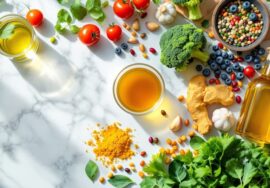
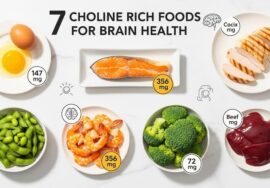
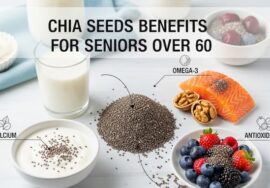

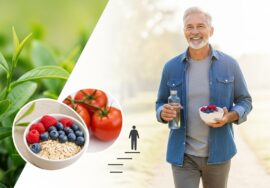
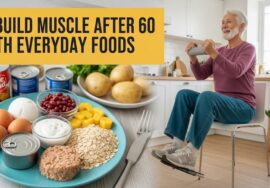
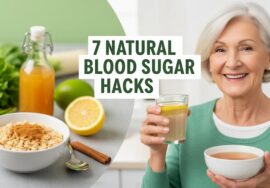
Enjoyed studying this, very good stuff, appreciate it. “Whenever you want to marry someone, go have lunch with his ex-wife.” by Francis William Bourdillon.